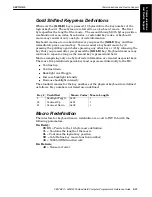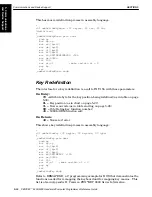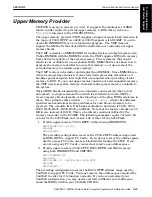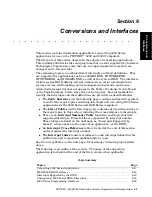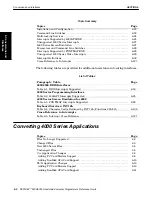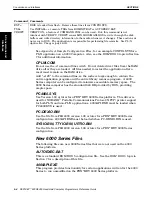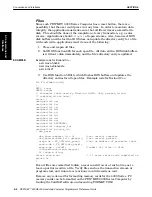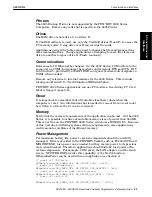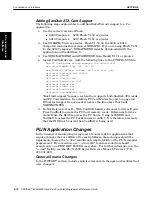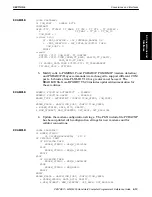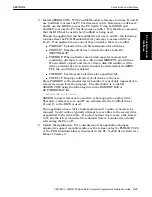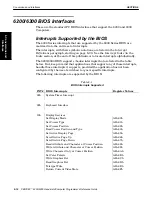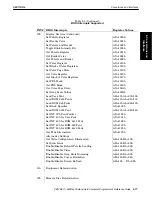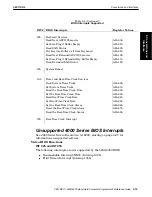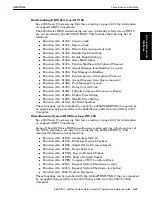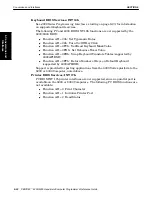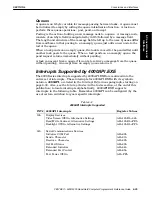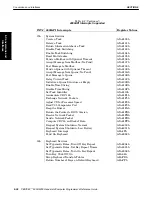
SECTION 6
Conversions and Interfaces
PEN*KEY
R
6200/6300 Hand-Held Computer Programmer’s Reference Guide 6-11
CLKIO
In the set date/time function of most PL/N applications, the user is prompted to
enter the day number, such as 1" for Sunday, 2" for Monday, etc. However,
unlike the 141XL/GL Computer, it is not necessary to set the day number of the
clock on the 4000 and 6000 Series computers because DOS determines the day
number automatically. Actually, we cannot really set the day number of the
clock on the 4000 and 6000 Series computers. CLKIO simply keeps track of the
offset between the entered day number and the actual day number so it can
return the desired value in CLKBUF.DAY_OF_WEEK. Any time the application
exits and is restarted, or CHAIN mode MC_EXEC_DOS is used, or the computer
is reset, CLKIO is reinitialized so Sunday is day number 1" again. Applications
should be modified as follows:
"
Remove the prompt for the day number
"
When setting the clock, set CLKBUF.DAY_OF_WEEK to PGDYN1P (date)
"
Replace all other occurrences of CLKBUF.DAY_OF_WEEK with PGDYN1P
(date, sunday) where sunday" is the day number for Sunday.
KBDIO
The current font files used with FONTMAP.EXE generate different display sizes
than those fonts supported on the 4000 Series systems. Applications that use
GETCTL 3 (KB_PHYSIZE)
need to do one of two things:
"
Include code to handle the new display size generated by FONTMAP.EXE.
Applications that support multiple display sizes often check the display size
in menu functions or other places where a larger screen can be used.
"
Utilize the
ćR
and
ćC
parameters of FONTMAP.EXE to set the display size
that will be returned by GETCTL 3 to match the size that the application
currently expects for the 4000 Series.
MEMIO
Because the PEN*KEY Computer has a reset switch, to maintain data integrity,
the application must make sure that all file writes are committed to disk.
Because of DOS disk buffers and the fact that DOS does not update the directory
entry for a file with each write, a new standard routine, IPFCMT6, is provided.
This routine flushes DOS buffers and updates the directory entries for all open
files. Applications should call this routine at the completion of every transaction;
for example, a sales invoice. IPFCMT6 is described in the
PL/N 4000 Series
Reference Manual, Volume 2
(P/N: 977Ć037Ć008).
All files that are written by OUT instead of PUT require additional measures to
properly commit them to disk. The use of OUT causes MEMIO to do buffering of
its own. To cause MEMIO to flush its buffers, these files can be closed and
reopened. Alternatively, all OUT statements can be replaced with calls to the
standard routine PZUFT1P, which ensures partial buffers are written correctly.
6. Conversions and
Interfaces

